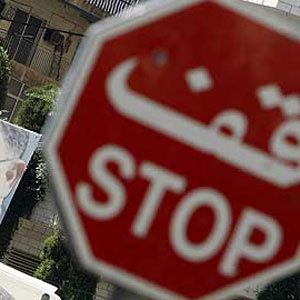Truce in Gaza and the Future of Iran

Persistent raids on Gaza –despite UNSC resolution- demonstrate that Israel and its supporters want to put an end to their concerns with resistance movements and Iran’s regional influence and set the ground for Obama’s entrance to the Arab Peace Plan.
It has been two weeks since the intense conflict in Gaza between resistance groups and Israel has started and warnings, human rights’ communiqués and diplomatic talks have failed to mitigate the strife.
Tzipi Livni has claimed that Hamas is pushing for reopening of border crossings to smuggle weapons into Gaza. Keeping to its commitments on sending aides to Gaza residents in order to show its attacks as a legitimate act of self-defense, Israel is using the opportunity to debilitate or obliterate Palestinian guerillas and terminate Iran’s influence in the region. It seems that Israel has gained Arab states’ consent in this course.
Israel’s pressures, supported by United States and Egypt, against what it calls a campaign against terrorist threats have brought hard days for Hamas and a dilemma: to continue the war or accept a truce inclined towards demands of the other side.
According to the latest news, a group of Israeli diplomats have met Egyptian senior officials to discuss truce. Hamas representatives were also going to visit Egypt on Saturday to discuss the same issue. But it seems no end to war is possible unless Israel achieves what it wants.
In addition to the aforementioned goals (concerning Iran and resistance groups), Israel is setting the ground to appoint its favored administration in Palestine. However, in achieving eternal peace, it faces stumbling blocks for which war isn’t a solution, but merely a prelude. In fact, Israel is taking advantage of the time gap between Obama’s election and inauguration to set its own agenda –on peace talks with Arabs and dealing with Iran- on his table.
If Hamas accepts the truce and yields to its terms, it will actually become paralyzed both as a movement and a government. On the other hand, if it rejects the ceasefire, it should act such that the other side is forced to withdraw.
In an interview with CNN, the Syrian president Bashar Asad stated that his country can persuade Hamas to accept the truce if Paris asks Israel to stop raids on Gaza and reopen the border crossings. The road to peace may pass through Damascus. If there appears a need for Syria’s mediation, Iran will become concerned. Syria is a part and parcel of the Arab Peace Plan and a focus of Obama’s attention for establish peace in Middle East. It is possible that Syria brokers truce in Gaza and that would raise the chances for its more significant role in the region.
Currently Bashar Asad has reached agreements with Sarkozy about some issues related to Gaza including a termination of raids by Israel, withdrawal of Israeli troops from Gaza and ending the blockade on the Palestinian territory.
On the other hand, Iran has overtly stepped in for the crisis and supported resistance groups. We can say whatever the result of developments in Gaza, it will have impulses for Iran. Iran is asking for a ceasefire that considers Hamas’ interests and doesn’t acknowledge Hamas as a terrorist group [since] it has also gained face as an institution, something intolerable by Israel and West. If Hamas is weakened and marginalized in diplomatic process, then the time would come for Egypt and Palestine to implement their plan for Palestine.

